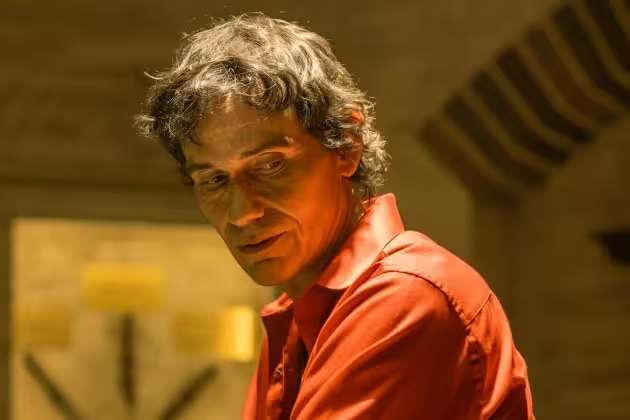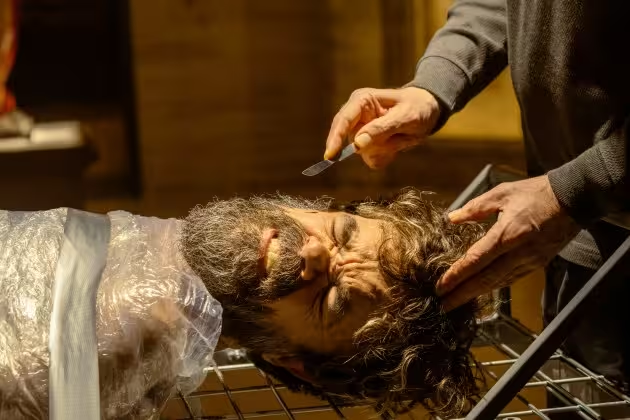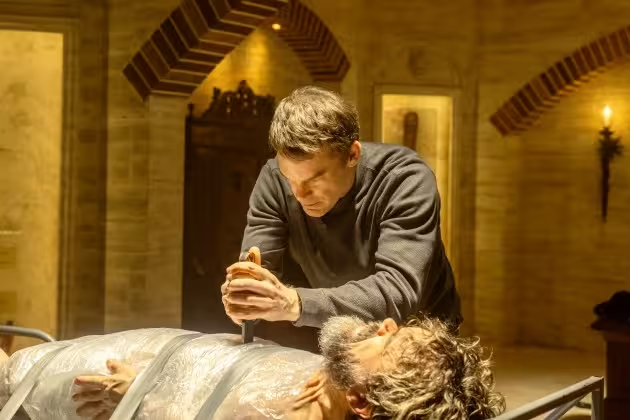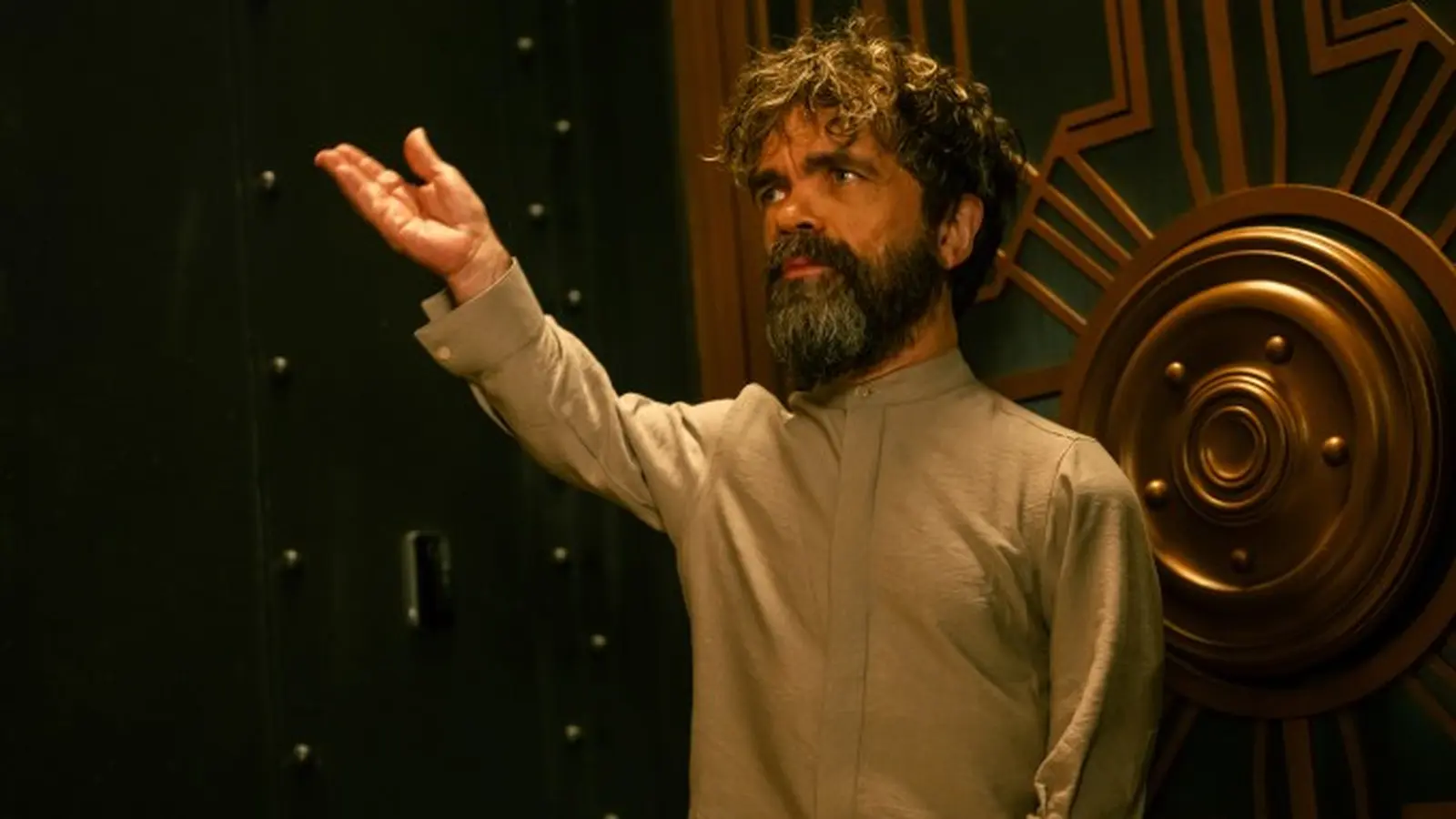10 Minutes
A Violent, Calculated Curtain Call
Showtime's Dexter: Resurrection closed Season 1 with a finale that balanced cold-blooded kills, character reckonings, and a surprisingly cinematic send-off. The episode ties up many of the season’s threads while explicitly pointing the franchise toward a darker, wider canvas. For longtime fans, it was both a farewell to familiar faces and a clear declaration that Dexter Morgan — now resurfaced and reinvented — has new rules, new allies, and new enemies.
Spoiler alert
This piece discusses major plot points from the Season 1 finale of Dexter: Resurrection.
The Big Set Piece: Prater’s Vault and a Gala of Consequences
At the center of the finale is Leon Prater (Peter Dinklage), a billionaire collector of the macabre whose philanthropic front stops short of morality. Prater’s vault becomes the crucible in which the season’s moral questions, family loyalties, and theatrical violence collide. After the grim discovery that Ángel Batista (David Zayas) was gunned down on Prater’s grounds, Dexter (Michael C. Hall) finds himself trapped — physically and ethically — with information that can topple a small empire.
The structural elegance of the episode flips between the glittering, public gala and the claustrophobic private world of Prater’s mansion. That contrast emphasizes one of Dexter: Resurrection’s recurring motifs: how monstrous appetites are often dressed up in public virtue. The gala crowd represents what society admires, while the vault reveals what it hides.
Where the Old Dexter Meets a New Partner
A key emotional beat is the collaboration between Dexter and his son Harrison (Jack Alcott). Dexter, who historically cultivated solitude and secrecy, is now forming a lethal partnership. Their relationship is the series’ most interesting narrative evolution: rather than romantically redeeming him, Harrison offers Dexter accountability and a reflected conscience. The finale leans into this father-son dynamic, culminating in a rescue, a calculated slaying, and the transfer of Prater’s secrets into Dexter’s custody.
This choice to make Dexter less of a lone wolf and more of a reluctant mentor changes the tonal center of the franchise. It’s not simply about a killer who follows a code; it’s about legacy, parental influence, and the possibility of passing down a set of ethics — even if those ethics are warped.

Reunions from the Past: Brian Moser and Dexter’s Inner Chorus
One of the episode’s most potent touches is a brief but meaningful reunion with Dexter’s imaginary brother, Brian Moser (Christian Camargo), a spectral echo of the Ice Truck Killer. Like Harry (James Remar), Brian functions as an interior commentator: where Harry is order and instruction, Brian is temptation and chaos. Their appearances in Dexter’s mind are less plot devices and more psychological weather, illustrating how the series continues to treat Dexter’s internal life as a stage where competing identities bicker for dominance.
The creative use of these apparitions maintains continuity with the original series while reminding viewers that Dexter’s greatest battlefield is always inside his skull.
Performance Highlights: Dinklage, Hall and Supporting Players
Peter Dinklage gives Prater a chilling blend of charisma and entitlement, never letting the character become a simple villain of privilege. Michael C. Hall remains magnetic as Dexter — calm, quietly monstrous, and yet oddly sympathetic. Their duel (one with knives, one with layered moral arguments) feels like a masterclass in tonal restraint.

Supporting turns deserve note: Uma Thurman’s Charley oscillates between protector and conspirator, Krysten Ritter’s Mia continues to haunt the narrative periphery, and Ntare Mwine’s Blessing offers a cultural counterpoint to Dexter’s American story. Meanwhile, Detective Claudette Wallace (Kadia Saraf) and her partner Melvin Oliva (Dominic Fumusa) provide procedural ballast; their discovery of Prater’s files — a folder labeled with a tantalizing name — is the season’s final breadcrumb.
Comparisons and Context: Where Resurrection Fits in TV Revival Culture
Dexter: Resurrection sits within a broader wave of TV revivals and reinventions. Like True Detective’s anthology reinventions or HBO’s revisit to established characters, Resurrection isn’t simply repeating the past — it’s reconfiguring it. Comparisons to Dexter: New Blood are inevitable: the latter reintroduced Dexter in a colder, quieter mood, whereas Resurrection ups the theatrical stakes and leans into political power plays.
There are echoes of other series that humanize or romanticize killers — think Hannibal's operatic visuals or Mindhunter’s psychological rigor — but Resurrection carves its own lane by doubling down on genre tropes (procedural discovery, private-citizen corruption) and serialized family drama.

Industry Insight: How Revivals Have to Earn Their Stakes
Reboots and revivals now face a high bar: audiences demand narrative justification, not nostalgia alone. Resurrection succeeds because it provides stakes both personal (Harrison, Dexter’s conscience) and structural (Prater’s influence, the New York Ripper mystery). The show also exemplifies a modern trend in prestige TV: pairing high-concept premises with character-centered arcs. Instead of merely cashing in on a beloved brand, Resurrection expands its mythology — a vital move in a crowded streaming ecosystem.
Trivia and Behind-the-Scenes Notes
- The finale’s yacht and waterfront images give the episode a cinematic sweep more akin to feature filmmaking than episodic TV — a technique used increasingly by prestige series to elevate finales.
- Production design leans into contrasts: opulent gala spaces, clinical vault interiors, and the intimate, grimy geography of a serial killer’s toolkit. These choices reflect a deliberate visual language that signals moral duplicity.
Fan and Critical Reception
Social chatter around the finale has been animated: many praised the season’s willingness to kill a beloved character and its bold moral ambiguity. Fans are debating whether Dexter’s acceptance of Prater’s files marks a move toward vigilante journalism or simply a new catalogue of victims. Critics are split on whether the show is redeeming the franchise or doubling down on what made the original controversial: an empathetic portrait of a killer.
"Dexter: Resurrection smartly balances spectacle with moral complexity," says film critic Anna Kovacs. "The finale doesn’t just shock for shock’s sake — it reframes Dexter’s choices as a kind of tragic inheritance. That’s brave storytelling for a franchise of this scale."
What the Finale Sets Up for Season 2
The episode leaves several clear threads for the next season: the implications of the stolen files, the identity questions surrounding the New York Ripper, and the practical consequences of Dexter’s new public anonymity (he leaves the scene with Prater’s reputation in tatters). Plus, the boat exit — Dexter driving a luxury yacht past the Statue of Liberty — is a visual metaphor for reinvention and escape.
Will Dexter become a hunter of corrupt elites using Prater’s ledger? Will Harrison’s emerging moral compass steer or destabilize the pair? And importantly, how will law enforcement react when clues inevitably point back to the vault? The detectives’ discovery of a folder labeled "Don Frampt, New York Ripper" promises a pulse-pounding arc that could tie city-wide conspiracies to personal vendettas.
Critical Perspective: Moral Ambiguity as Serial Entertainment
Resurrection asks an old question with fresh boldness: can a show continue to invite audience sympathy for a killer and still engage ethically? The finale doesn’t aim for a tidy answer. Instead, it dramatizes the cost of living by a hidden code and the compromises required when survival meets legacy. For some viewers, Dexter remains an antihero worth following; for others, the series is a study in complicity. Either way, the season closes with a confident tone: unresolved, morally murky, and narratively hungry.
Concluding Thoughts: A Franchise That Keeps Reinventing Itself
Dexter: Resurrection’s finale is a successful gambit on multiple levels. It delivers on spectacle and character payoff while expanding the show’s moral imagination. The decision to hand Dexter a dossier of human stories — not as trophies but as leads — may be the smartest narrative pivot the franchise has made. It transforms Dexter from a man who kills according to a private code into a figure who navigates systems of power, making the show less about concealment and more about confrontation.
For viewers who loved the original series and for newcomers drawn to dark, character-driven thrillers, Resurrection offers an enticing proposition: familiar bones dressed in new flesh, ready to be explored. Whether the show will deepen its ethical inquiries or lean harder into thrilling set pieces remains to be seen, but the finale proves one thing — Dexter Morgan, for better or worse, is far from done.
Parting note
The season ends with Dexter at the helm of a new future: free for now, but tethered to a set of consequences only beginning to reveal themselves. That uncertainty is the series’ greatest asset; it promises the kind of serialized storytelling where every moral choice reverberates across city skylines, family dinners, and vault doors.
Source: deadline



Leave a Comment